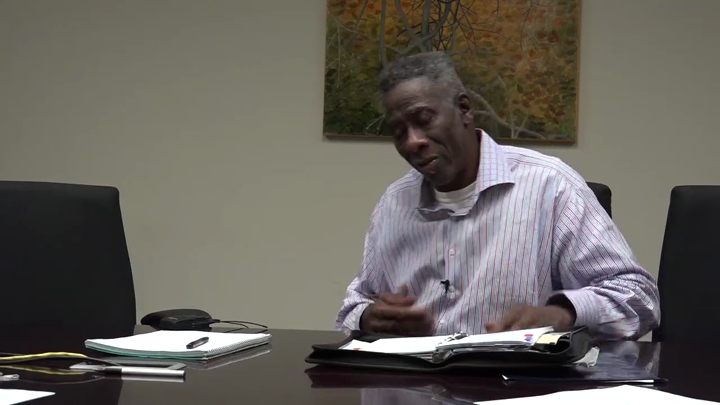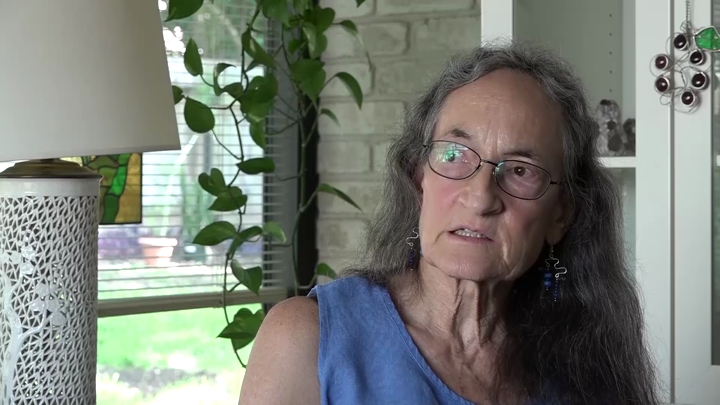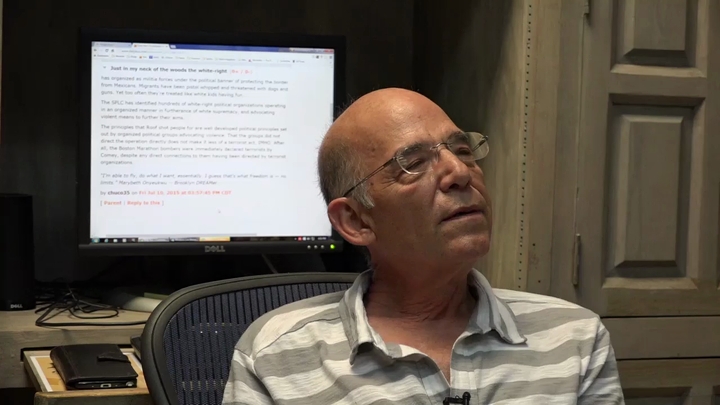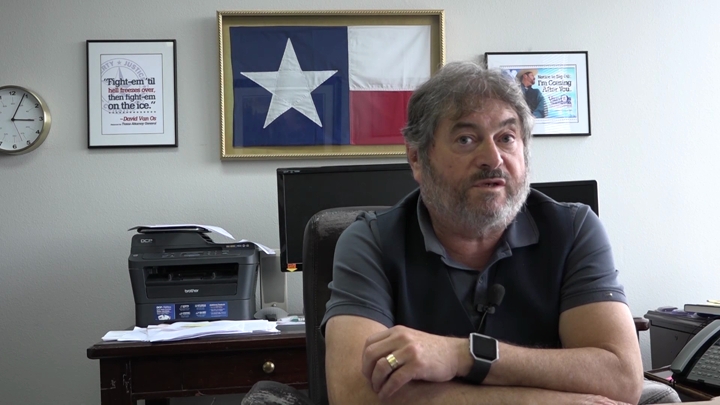Luthuli-Allen / Activism Then, and Students Now
sign up or sign in to add/edit transcript
Interviewer: How did you all cooperate in each other’s movements? Lituli-Allen: We were back and forth in automobiles, you know what I mean? We were always at UT, they had the Negro Association for Progress. Then, we were always at Denton. So, we were on the move during that particular time, visiting each other’s campus, supporting each other’s demonstrations, kind of taking the best thinking of each one of the university’s movements to try to see if we can institute these best-practices at these universities. What you’ve got to remember is that the civil rights, or what you might even call the international freedom movement—so, in other words, if you have someone from southern Africa who was working with the Pan-Africa movement. When they got to New York and were doing a nationwide tour, everybody knew that they had to stop in Texas and that they had to come to the University of Houston and talk to the activists at the University of Houston. If you went to the University of Houston, your next stop was Austin, then your next stop was Denton. So, we had this internationally sol9idarity that was going on at the same time. We were very friendly with the Students for a Democratic Society which was SDS. We were very familiar with all the groups that were familiar with the anti-war movement. A lot of us went to Woodstock. Y’all know about Woodstock? I didn’t go to Woodstock, but a lot of my friends went to Woodstock. That was like a merger of all these progressive movements. There were some reactionary movements that pushed back against this merger but during that time, some powerful interracial alliances were being built. I hate that they’ve deteriorated, but I’m also mindful of the fact that Maria and I are getting old. I think that we still have an appreciable amount of fervor and energy. At the same time, our commitment, we’re kind of passing the torch working with the Freedom Bound movement and the Black Lives Matter movement and the other kinds of progressive movements. I think the beauty of it is that during the time that Maria and I were around, it was almost like every generation had a mission to fulfill. It must fulfill or reject that mission. A statement by Franz Ferdinand. It’s like history chose us, and then we got remade through history, and then we chose history. So, I’m saying that as Maria became transformed as a young woman after she came back from some of her immigrant work on the other side of the border, she was much more mature, compelling, and convincing in her thinking and her ideology. So, when she came back she had another transformative impact on everybody that she met. I’m thinking about the growth process of us continuing to be involved in these progressive movements. I can probably think of a dozen progressive that we haven’t even mentioned, and that we haven’t even talked about today. I’m just saying that I think we were being recreated or remade through our engagement in these progressive movements. In terms of me trying to get youth involved in understanding the worldwide basis or this contribution to advancement of oppressed people. The sixties and seventies started that quest to get beyond a national consciousness to deal with an international consciousness. So that’s why I started taking students to South Africa. Three trips to South Africa, a trip to Cuba, a trip to Brazil, a trip to the Netherlands to the International Criminal Court, and all of these things actually started from the fight that began in the sixties. Even this effort that we’re working with now which is the My Brother’s Keeper, which is President Obama’s program to break the pipeline between school community and prison for black and Latino boys. This is really an extension of the fight that began in the sixties and so, to a very large extent, those activists are really like the forerunners for President Obama.
| Interview | Interview with Omowale Luthuli-Allen |
| Subjects | Historic Periods › Mid-1960s [Exact Date Unknown] |
| Historic Periods › 2009-Present | |
| Student Activism | |
| People › Obama, Barack | |
| Military › Vietnam War › Anti-war Movement | |
| Tags | University of North Texas (UNT) |
| University of Texas at Austin | |
| University of Houston | |
| Students for a Democratic Society (SDS) | |
| Black Lives Matter | |
| sign up or sign in to add/edit tags | |
| Interview date | 2016-06-17 |
| Interview source | CRBB Summer 2016 |
| Interviewees | Luthuli-Allen, Omawale |
| Locations | Houston, TX |
| Denton, TX | |
| Austin, TX | |
| Duration | 00:06:34 |
| Citation | "Activism Then, and Students Now ," from Omawale Luthuli-Allen oral history interview with , June 17, 2016, Civil Rights in Black and Brown Interview Database, https://crbb.tcu.edu/clips/3445/activism-then-and-students-now, accessed March 04, 2026 |






